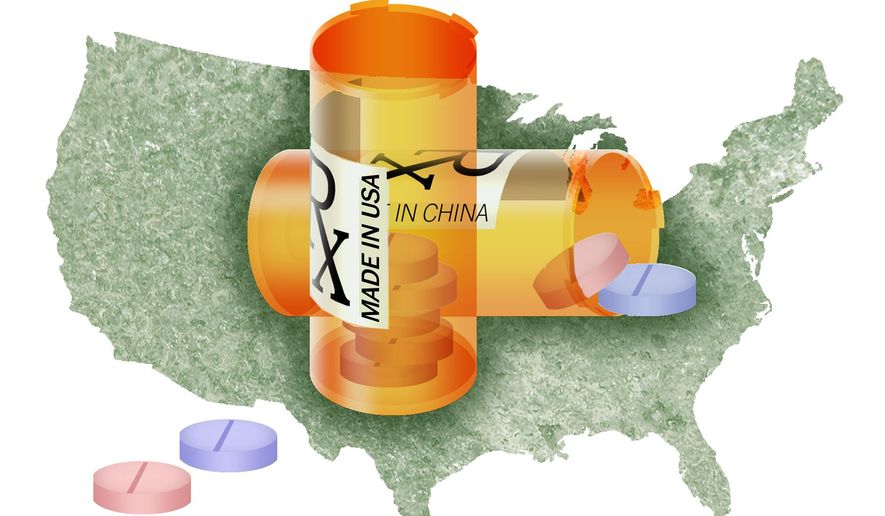OPINION:
President Trump is working to reshape the country’s manufacturing economy in the “America First” image through a combination of hardening domestic supply chains against hostile countries and creating economic opportunity for American workers. Ahead of the 2026 midterm elections, Republicans hope a stiff cocktail of foreign policy maneuvers, tax relief and regulatory reform will make MAGA dreams a reality.
Reshoring the production of prescriptions in our medicine cabinets and the vaccines that keep our children healthy is a significant part of that puzzle. For too long, foreign competitors such as China have had a viselike grip on the global biopharmaceutical supply chain. As a result, Americans have been increasingly reliant on factories thousands of miles away for the ingredients of lifesaving drugs.
Mr. Trump has recognized this vulnerability and taken action. In May, he signed an executive order that cut through bureaucratic red tape, which had slowed down medicine production on U.S. soil. By August, the White House reinforced that commitment with measures to expand the nation’s reserve of active pharmaceutical ingredients, the building blocks of modern medicine. Tax cut extensions are incentivizing further investment.
As these policies help shore up our pharmaceutical supply chain, Mr. Trump is making “Made in America” medicine more affordable and accessible. He is taking action to improve pricing transparency within the drug supply chain to lower medicine costs. In tandem, the administration is targeting bloated government programs that allow hospitals to game the system at patients’ expense.
These pro-growth policies are yielding significant economic growth, with planned investments totaling half a trillion dollars over the next decade and creating 100,000 jobs. GSK, for example, is building a biologics flex factory in Upper Merion, Pennsylvania. Biogen announced plans to invest $2 billion in North Carolina’s Research Triangle Park.
Companies are also taking advantage of established infrastructure in the U.S. territory of Puerto Rico. The island has the second-largest pharmaceutical manufacturing output in the nation and produces some of the top-selling medicines. Amgen, for example, recently announced plans to invest $650 million in expanding production capacity and hiring additional workers.
To fully seize this opportunity, the White House must avoid undermining its own progress with policies that hinder the implementation of the “America First” agenda. Chief among them is the so-called most-favored-nation initiative. In short, the policy would peg U.S. drug prices to artificially low rates set by foreign governments with socialized health care systems.
Voluntarily adjusting prices to reflect market realities is encouraged, but using the heavy hand of government to control prices is better suited for a Zohran Mamdani stump speech than for the policy prescriptions of a Republican president. In practice, the scheme would discourage companies from investing in U.S. facilities, a result contrary to Mr. Trump’s intentions.
Democrats deployed a similar scheme during the Biden administration via the so-called Inflation Reduction Act. It created Medicare price controls, which predictably have had a chilling effect on medical innovations. Since the law’s passage, more than 50 research projects have been canceled and dozens of drugs have been discontinued.
Rather than doubling down on self-destructive government price controls, Mr. Trump should build on America’s trade strength to ensure other countries pay their fair share for lifesaving medicines. His leadership on the matter is having a tangible impact, with pressure on countries such as the United Kingdom to reform medicine pricing intensifying.
Ahead of the 2026 midterms, Mr. Trump is hoping to deliver a strong economy that provides growing job opportunities while making the country less reliant on hostile nations, such as communist China, for critical goods. Supercharging domestic medicine production with smart tax and regulatory reforms is a policy prescription that will help make it happen.
• Jamey Bowers is a partner and owner at Berman and Co.




Please read our comment policy before commenting.